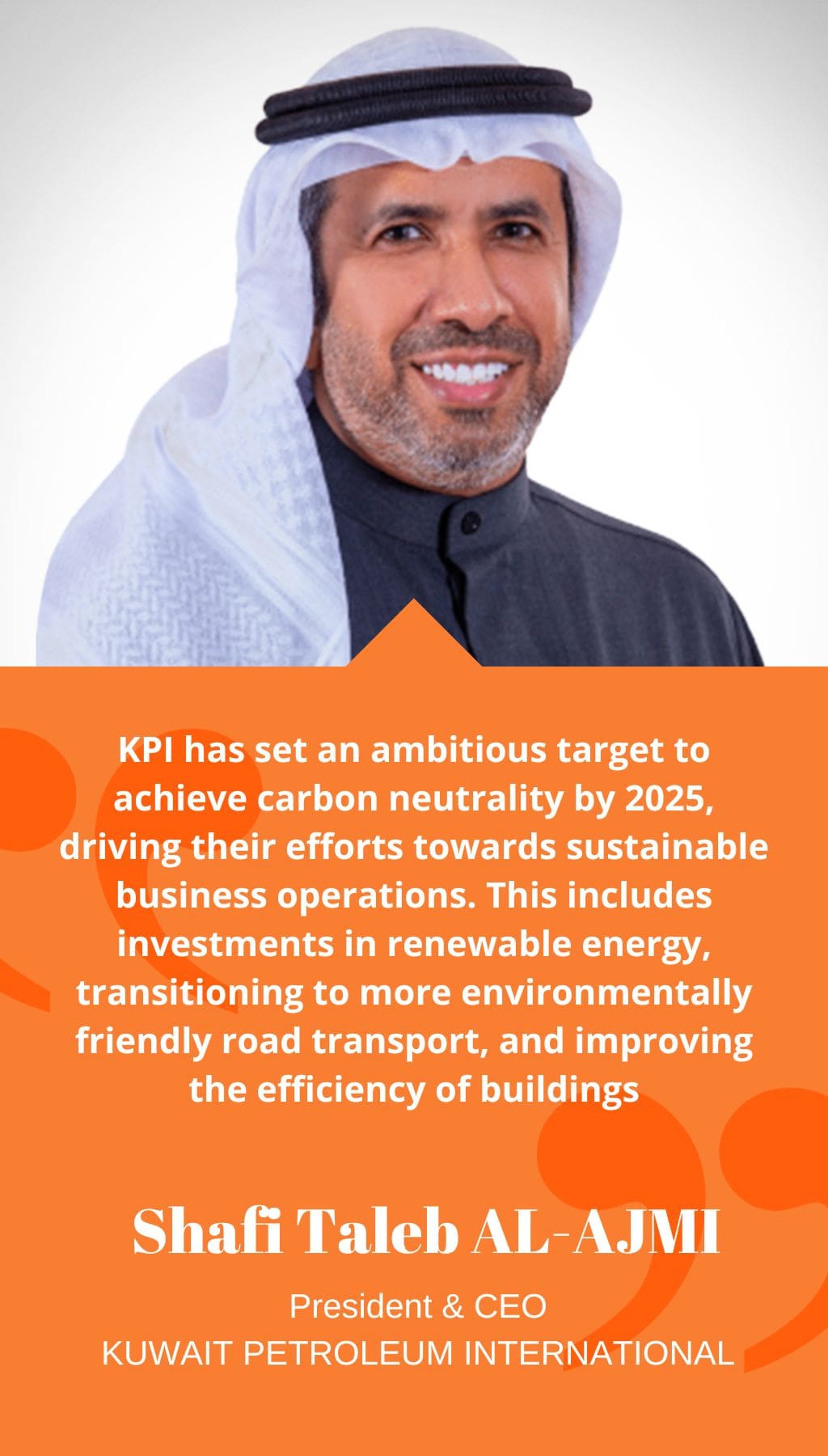
- Kuwait | 23 June 2023

What are Kuwait Petroleum International’s most strategic operations?
Kuwait Petroleum International (KPI) has strategically positioned itself in various sectors of the energy industry. In 1983, KPC acquired Gulf Oil’s refining and marketing operations in Western Europe and established Kuwait Petroleum International in London to oversee these interests. KPI operates over 4,700 retail stations across Europe, with a focus on Italy, Spain, and the Benelux region. The Q8 brand, launched in 1986, serves as the trademark for KPI’s fuel stations throughout Europe.
In addition to retail operations, KPI is involved in other key areas. Q8Aviation, an aviation fuel supplier, fuels more than 200 major airlines in 64 airports worldwide. KPI also operates two state-of-the-art lubricant plants in Antwerp, Belgium, and near Milan, Italy, producing over 1,000 different grades of oil under the brand Q8Oils. Furthermore, KPI has established three joint venture refineries. These include a refinery in Milazzo, Italy, in partnership with Eni; a refinery in Nghi Son, Vietnam, in collaboration with Petrovietnam, Idemitsu Kosan, and Mitsui Chemicals; and a refinery in Duqm, Oman, with the Omani national oil company OQ.
Overall, KPI’s strategic operations encompass retail stations, aviation fuel supply, lubricant production, and joint venture refineries, contributing to its significant presence in the downstream sector.
What are the latest updates on the Duqm Refinery project?
The Duqm Refinery project, known as OQ8, is a joint venture between KPI and OQ, with each having a 50% share. Situated in the Special Economic Zone at Duqm (SEZD) in Oman, this grass-root refinery is located 600 kilometers south of Muscat. As of March 2023, the project has reached an impressive 92% completion rate, and commercial operation is expected to commence in January 2024.
The Duqm Refinery will process 230,000 barrels per day (bpd) of Kuwaiti and Omani crude oil, producing primary products such as LPG, naphtha, aviation turbine kerosene (ATK), diesel, sulphur, and petroleum coke. It is designed to operate as a merchant refinery, with a primary objective of maximizing diesel production while meeting Euro 5 standards.
Notably, the Duqm Refinery project stands as the largest existing joint venture among the Gulf Cooperation Council countries, reflecting the strength of Kuwaiti-Omani relations.
What are your key strategic priorities for the years to come?
KPI has outlined key strategic priorities to solidify its position as a leading player in the downstream market. Firstly, the company aims to deliver energy and services that drive the growth of the countries it operates in. This includes a focus on commercial sustainability, investment in its workforce, and being a reliable partner within communities and markets.
In Europe, where KPI’s core business is located, the company is determined to become a successful mobility player by embracing innovation and adhering to the highest operational standards for achieving excellence.
Beyond Europe, KPI seeks partnerships with top oil players in the refining industry to optimize the value chain. Through strategic investments and collaboration with reliable partners, KPI aims to strengthen its existing portfolio and seize viable business opportunities while leveraging Kuwaiti hydrocarbons on an international scale. Furthermore, KPI aims to excel as an energy and fuel service provider while adapting to environmental regulations and emerging alternative energy trends within the industry.
What are the key trends shaping the global downstream sector?
In the downstream sector, KPI aspires to be an internationally competitive and integrated player in refining and petrochemicals. To achieve top-quartile performance and financial results, KPI focuses on continuous improvement of operational and financial performance to extract maximum value from its assets. The company also pursues opportunities for petrochemical integration, aiming to optimize refinery margins and reliability.
Looking to the future, KPI acknowledges the increasing prominence of the energy transition agenda. This involves partnering with technology leaders, exploring new business ventures and investment opportunities, and forming marketing alliances to advance their long-term strategy.
How important are sustainability and decarbonization goals in KPI’s growth strategy?
Sustainability and decarbonization goals hold great importance in KPI’s growth strategy. With a focus on the future, KPI aims to become a hub for energy and mobility services while utilizing natural resources responsibly to offer cleaner products and greener services, thus reducing their carbon footprint.
KPI has set an ambitious target to achieve carbon neutrality by 2025, driving their efforts towards sustainable business operations. This includes investments in renewable energy, transitioning to more environmentally friendly road transport, and improving the efficiency of buildings, depots, and stations. KPI also emphasizes fostering an internal culture of sustainability awareness within Q8.
In support of the energy transition, Q8 offers electric charging for electric vehicles in Italy and the Benelux countries, along with gasoline and diesel blended with biofuels. Moreover, solar cells are employed in several retail stations to meet part of their power needs. The Scandinavian joint venture of Q8 goes a step further by supplying renewable energy to the grid. Additionally, Q8 contributes to sustainability efforts by providing sustainable aviation fuel (SAF) in selected airports.
KPI’s commitment to sustainability and decarbonization aligns with the broader goal of creating a cleaner and more environmentally conscious energy sector.














